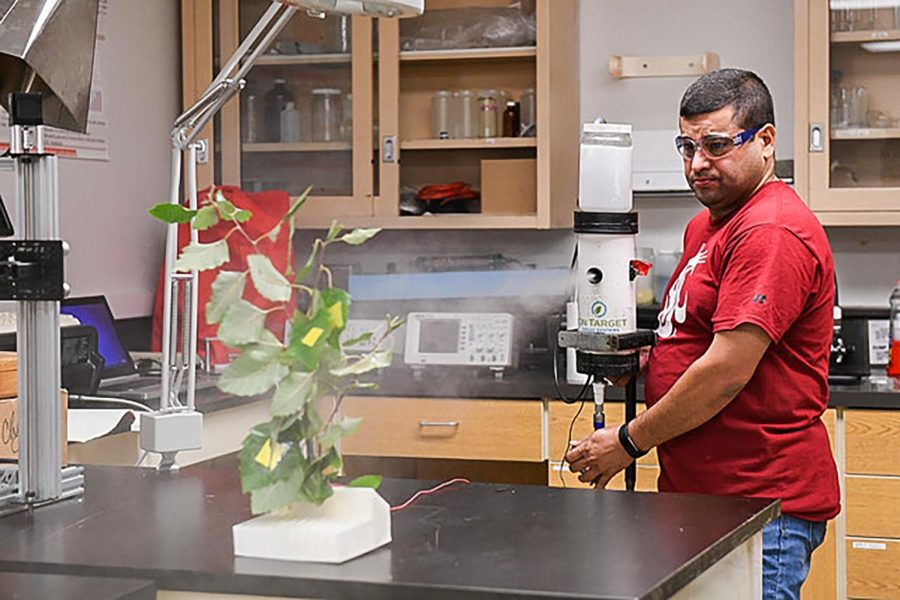New spray to prevent frost damage for days
Product tested in Yakima Valley, Tri-Cities orchards
October 3, 2019
Professors at the WSU Tri-Cities campus are developing a biorenewable spray that prevents frost damage on crops for about 72 hours.
Qin Zhang, professor and director of the WSU Center for Precision and Automated Agricultural Systems, said the project aims to reduce frost damage affecting crops during spring.
Xiao Zhang, associate professor of chemical engineering, with other faculty, formulated a nanocrystal solution in 2018 that was used to develop the new frost spray, Qin said.
Changki Mo, associate professor of mechanical engineering, said farmers who grow fruits on trees usually use a heater or a wind turbine to prevent frost in the spring. Heaters used by farmers are common and not environmentally friendly, he said.
Deb Pehrson, farm manager for the R.B. Tukey Horticulture Orchard, said weather affects the orchard year-round.
“Springtime is when bloom time is, and so if we have frost during bloom, it can send off the whole crop or parts of the crop,” Pehrson said. “We can’t grow peaches very well in this area because peaches are highly affected by the frost.”
She said the fruit grown on the orchard can also serve different purposes.
“We supply fruit to any research projects here on or off campus that need it and any surplus fruit we sell to the general public,” Pehrson said.
She has been working with the Tukey Orchard for about 30 years. She said the frost impact on the orchard changes each year.
“If there was a way to minimize frost problems, that would be great,” she said.
The spray is in its second year of development. Testing the spray has taken place in a few different places including the Yakima Valley and the WSU experimental orchard in Tri-Cities, Qin said. The testing received positive results.
Mo said they will continue to test the spray in other orchards this year.
The biggest challenge has been making growers understand how the material protects tree fruits and crops, he said. Researchers want growers to understand that the spray will not harm crops.
Mo said the spray material has a low conductive rate, which allows for it to serve as an insulator. The team also found that the spray delays the crystallization of ice.
He said the team hopes to keep running tests on the spray, especially when it comes to longevity. The team’s next steps include contacting manufacturers to produce more material and increasing the variety of tree fruits they test on.





















